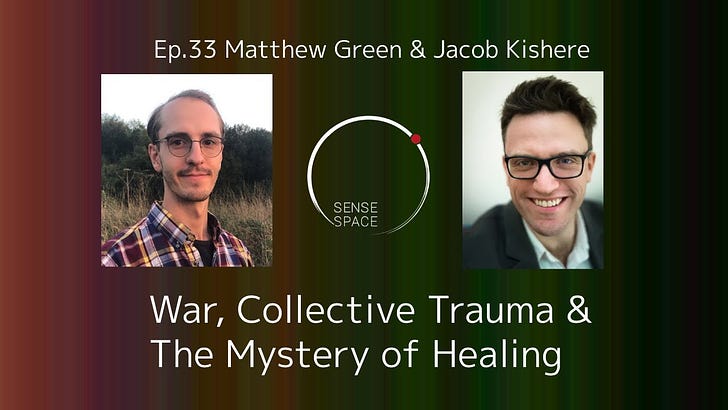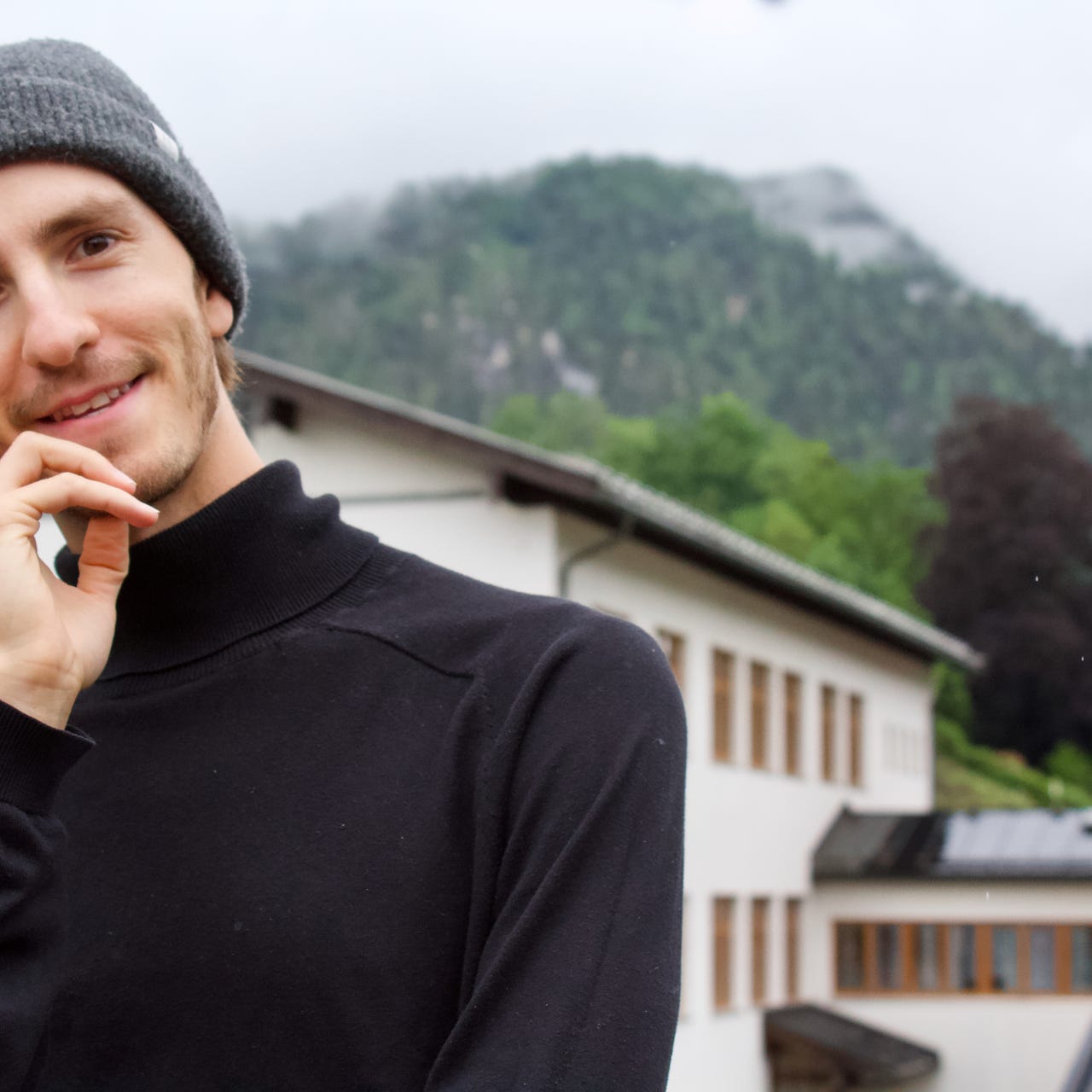Cradling the soldier inside
Jacob Kishere's Dialogos process helped me explore the legacy I inherited from ancestors who fought and died in two World Wars.
Resonant World #7
I haven’t known Jacob Kishere for very long, but I’ve come to value his friendship enormously. Dialogos — his unique approach to hosting transformative dialogue — has led me into a deeper encounter with my understanding of collective trauma; how it shows up in my own life, and the underlying mystery that guides all true healing.
We first connected when our mutual friend Daniel Simpson shared Jacob’s remarkable essay on his lived experience of the impact of ancestral war trauma, The War Of My Forefathers. Jacob wrote about a profound healing experience, where:
“For the first time, quite unexpectedly, I felt myself fully immerse in the anguish of war my grandfather Leonard had experienced. There was an overwhelming realisation of war as a violence against the soul. I entered into a somatic experience and vision in which I felt myself the perpetrator of war and its victim. I felt myself cradling that soldier and being cradled. At the end, I felt myself setting something free. I felt that I told that man, still lingering in war, that he could finally go now.”
I was amazed to read about his own felt sense of the legacy of the First and Second World Wars, since it seemed to synchronistically speak to an extremely powerful process I had just experienced in relation to my own martial ancestors during a week-long retreat run by Thomas Hübl in Germany in March.
Ancestral echoes
A couple of weeks ago, Jacob and I met online to discuss my book Aftershock, which documents the struggles of British military veterans and their families to find new ways to heal. There’s a video of our dialogue above (which forms Episode 33 of Jacob’s SenseSpace podcast) and you can listen to an audio version on Spotify.
The conversation took off in ways I couldn’t have anticipated, and I experienced the power of Jacob’s process to confront me with parts of myself, and ideas about how reality might work, that I’d never previously managed to put into words. In his presence, I felt safe to unpack my understanding of how the impact of war on my grandfather and great uncle has lived on inside of me — in ways that I suspect might stretch the credulity of people less familiar with ancestral work.
Our topics included:
Our experiences of connecting with unconscious layers of inter-generational war-related grief, and learning more about how that had shaped our lives.
Jacob’s realisation of the importance of sinking roots into the “soil” of his ancestral resources as part of his healing path.
How collective trauma work can help us see through the illusion of who we thought we were — and offer a radically more expansive sense of ourselves that is less susceptible to comparison, envy and shame.
How psychedelics can loosen the “constrained notion of self” that can keep us trapped in our personal trauma history.
How a psychedelically-informed perspective can be an antidote to complacency and spur greater engagement in the world.
How men’s work can help us get what we didn’t receive from our fathers, through the support of surrogate brothers.
My understanding of how ancestral trauma can show up in me as irrational anger, and how recognizing that process was like scanning a karmic “barcode” (to borrow a metaphor from Hübl).
What happens if we approach life from the perspective that everything that happens is somehow serving our highest healing? Or would this risk straying into the spiritual bypass zone?
Learning the warriorship of finding the light in the shadow of anger, and how men and women can use that light to lead in more vital ways.
Are the new global micro-communities congregating on Zoom as revolutionary as the invention of the Greek amphitheatre? (to quote Theatre of War artistic director Bryan Doerries).
You can find out more about Jacob’s transformational dialogue practice, experimental art and philosophy at his website. (If you want to give the technique a try to dive deeper into your own life, then I highly recommend booking a Zoom session with Jacob). And I’d also invite you to check out his culturepilgrim newsletter:






This is interesting and timely to me, as I have been reminding myself of Bonnie Badenoch;s concepts of "trauma as relational" and "internalized others"... I just wrote about her work here https://garysharpe.substack.com/p/the-mind-body-interpersonalrelational
I think this may speak to the mechanism of how our ancestor's traumas get internalized, but I also mention how indigenous belief systems which connect to protective ancestors may have inherent wisdom in bolstering resilence:
"Another key insight from Bonnie’s work is that it is not just our connections with people who are co-present to the potentially traumatic event, but that also people, presences and relationships that we have internalized matter.
For example, a traumatic event is less likely to embedded if we got our needs met by our parents, and we were supported by their care in early life, whether or not they are present or even still alive, or if we know there is a loving spouse waiting for us at home, or we have a group of friends we can truly rely on.
By the same token, there is also wisdom in indigenous beliefs grounded in a sense that we are connected to ancestors who love us and watch over us, or having a totem or spirit animal as a protector."